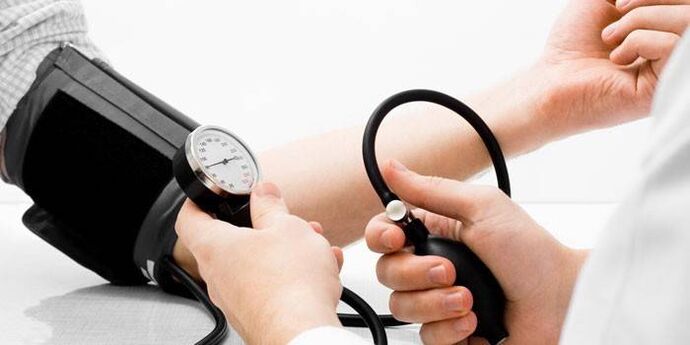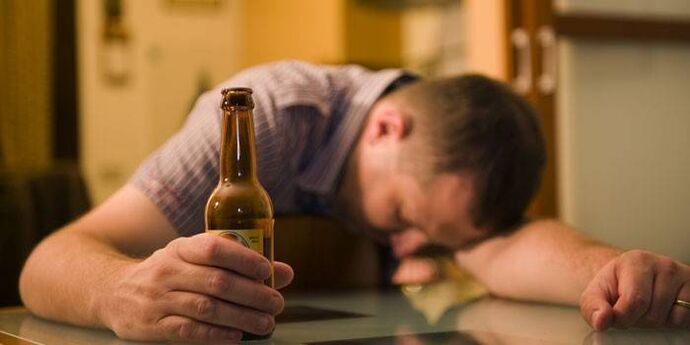As blood pressure increases, fatal pathologies of the cardiovascular system develop. Characteristic jumps are harmful to health, and in the absence of prompt treatment, doctors do not rule out a hypertensive crisis. 30% of patients face this problem, and the symptoms are constantly getting younger.
What is high blood pressure
Arterial hypertension is an independent disorder of blood pressure. Modern youth are now at risk too if only adult patients had a characteristic disease early on. Untreated arterial hypertension can lead to disability and death.
When measuring outlet pressure, double indication is obtained. When you decipher it, you can get a real clinical picture. The first value characterizes the systolic blood pressure (upper pressure), which corresponds to the contractile force of the heart wall. The second is diastole (bottom), indicating the pathogenesis during myocardial relaxation. Hypertension can be diagnosed at home using a classic tonometer, but requires clarification in a hospital setting.
degree
The pathological process develops gradually, and the symptoms increase unknowingly, become frightening in intensity, and cause other heart problems. In the body, high blood pressure manifests itself in one of three degrees—what it is, a cardiologist will tell you. Condition classifications for characteristic disorders with brief features are as follows:
- The first degree is elementary. Blood pressure increases were negligible, limited to 139-159 / 90-99 mm Hg. Art. At first, symptoms appeared unexpectedly, then disappeared without knowing it. The disease can still be cured.
- The second level is moderate. Possible deviations from the standard are kept within 160–180/100–110 mm Hg. Art, although it is almost impossible to stabilize this indicator. Increased risk of hypertensive crisis.
- The third pronunciation. The deviation from the standard is horrific on its scale, approaching 180 and above / 111 mmHg. Art. If hypertension manifests in this way, the extent of the pathological process leads to a disruption of cardiac activity.

type
There are several conditional classifications of this disorder that can help specialists describe the clinical presentation as accurately as possible, make an adequate diagnosis, and select the most effective treatment for timely relief of anxiety symptoms. All existing types of hypertension are briefly described below:
- By etiology: primary and secondary arterial hypertension;
- Symptomatic (secondary) hypertension: drug, endocrine, hemodynamic, renal, neurogenic;
- By complications: hypertensive crisis, malignant or unstable hypertension.
Causes of high blood pressure
To ensure long-term remission, it is important to study the etiology of the pathological process. The main cause of high blood pressure is impaired circulation through the blood vessels, restricting blood flow to the left ventricle of the heart. In modern medicine, there is a perfectly logical explanation for this - blood vessels undergo structural changes with age, with thrombus and atherosclerotic plaques forming in their lumen.
in men
Women are more prone to a characteristic disorder, but it can also develop in men. The main causes of high blood pressure in men are listed below, but experts strongly recommend avoiding such stimuli and eliminating them from your life in a timely manner. This is:
- stressful situations;
- genetic susceptibility;
- bad habits;
- Previous injuries from circulatory violations;
- Age-related changes in blood vessels, loss of elasticity;
- alcoholism;
- A predisposition or presence of a form of obesity.

in women
If a woman has high blood pressure - what it is, you can find out during an appointment with a local therapist, a highly specialized specialist. The diagnosis is unpleasant and difficult to treat effectively. In order to avoid complications in time, it is important to understand the main causes of high blood pressure in women. This is:
- Severe emotional shock, crisis, chronic stress;
- overweight, obese;
- hormonal background disorder;
- premenopausal state;
- increased blood cholesterol;
- the patient's advanced age.
signs of high blood pressure
Knowing what hypertension is, the patient must respond in time to changes in the general state characteristics of the disease. Identifying high blood pressure isn't easy, it's the doctor's job, so it's important not to delay the diagnosis. Blood pressure is unstable and is affected by external stimuli. Other signs of high blood pressure depend on the sex of the potential cardiologist patient.
in women
Weaker gender representatives reacted violently to the slightest changes in health, so they were more likely to recognize when something was wrong with their body. The disease can overtake patients in "interesting positions. "The main symptoms of high blood pressure in women are:
- Spontaneous headaches at different times of the day;
- Decreased vision, sharp turns of the body and head, and loss of sharpness;
- swelling of the lower extremities;
- excessive irritability;
- Puffy face in the morning.

in men
At first, patients don't feel a change in their overall health, with the mildest illnesses being increased physical activity, excessive fatigue, or environmental factors. Symptoms of high blood pressure in men became more pronounced over time, suggesting progressive heart failure. This is:
- Reduced potency, sexual problems;
- concentration drops;
- increased shortness of breath;
- Depressed state;
- Anterior fly syndrome with sudden movement.
treat
Knowing who suffers from high blood pressure, we can safely say that these individuals have to "sit" on a pill for their entire life in order to maintain their overall health at a "satisfactory" level. There is no way to completely cure the disease, but it is entirely possible to treat it. If you are interested in how to treat high blood pressure, the characteristics of the conservative approach are described below. necessary:
- All necessary tests are done to determine the stage and form of the disease.
- Quit bad habits and go on a therapeutic diet.
- Regular use of drugs with antihypertensive effects;
- With regular examinations by specialists, folk remedies eliminate the risk of complications.

How to treat high blood pressure without taking medicine
If there is no desire to take antihypertensive drugs and a negative attitude towards the drugs, what about high blood pressure? Doctors recommend going outdoors more, taking iron-containing multivitamins to maintain systemic circulation, quitting bad habits, and choosing effective aerobic exercise. Don't live an isolated lifestyle. However, during the relapse phase, you still have to take high blood pressure medication to avoid the risk of complications during the work of the heart muscle.
Diet for high blood pressure and heart disease
Therapeutic nutrition eliminates salt depletion and is designed to control the body's water balance. If high blood pressure is diagnosed -- what exactly it is and how to treat it, a cardiologist will tell you. For example, diets for high blood pressure and heart disease provide the following restrictions in a patient's daily diet. The following foods are considered fasting:
- caffeinated beverages;
- sharpness, pickles, bacon;
- internal organs;
- Alcohol;
- Fat meal.
If this is chronic high blood pressure - what is it in terms of nutrition? allow:
- lean meat;
- unsalted grains;
- dairy products.





















